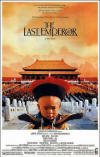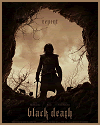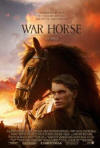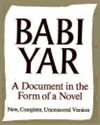Reviewer: Ms. Fox Length: 58 minutes Age appropriateness: "The Jewish People: A Story of Survival" is not officially rated in the United States. It is safe viewing for all ages. The content of this documentary film is most appropriate for students in grades 5 and up. Creators and stars: Alan Dershowitz, Andrew Goldberg, Benjamin R. Gampel, Carole B. Balin, Christine Hayes, Deanna Copeland Klepper, Douglas Chang, Elie Wiesel, Emily Webster, Emily Yacus, Fran Lebowitz, Gary Shteyngart, Lawrence H. Schiffman, Martha Teichner, Michael Stanislawski, Rabbi Brad Hirschfield Accuracy: For a documentary that summarizes 4000 or so years of History in just under an hour, this film manages to stay fairly accurate. This video's primary issue is how much of Jewish History is glossed over. Click here to visit the film's official website. 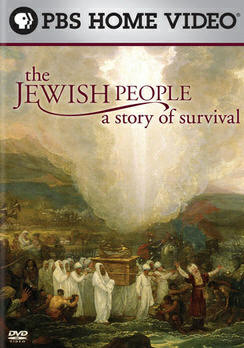 Review: "The Jewish People: A Story of Survival" is designed for those with little or no knowledge of Jewish History, beliefs, and culture. In slightly less than an hour, this documentary covers over 4,000 years of Jewish History. It features interesting illustrations and footage, as well as interviews with leading scholars. The origins and basic tenets of the Hebrew faith are given. The scholarly debate over the historicity of biblical accounts (which is a huge one; check out the Biblical Archaeology Society for more information) is given miniscule screen time. For the most part, dates and facts for pre-Roman Jewish History are avoided like the proverbial "hot potato" that they are. Regardless, there is enough of a decent overview of this time period for the film's target audience (those with little or no knowledge or background on ancient Levantine History). Review: "The Jewish People: A Story of Survival" is designed for those with little or no knowledge of Jewish History, beliefs, and culture. In slightly less than an hour, this documentary covers over 4,000 years of Jewish History. It features interesting illustrations and footage, as well as interviews with leading scholars. The origins and basic tenets of the Hebrew faith are given. The scholarly debate over the historicity of biblical accounts (which is a huge one; check out the Biblical Archaeology Society for more information) is given miniscule screen time. For the most part, dates and facts for pre-Roman Jewish History are avoided like the proverbial "hot potato" that they are. Regardless, there is enough of a decent overview of this time period for the film's target audience (those with little or no knowledge or background on ancient Levantine History).From Nebuchadnezzar to Cyrus the Great, the video skips ahead to the era of Roman rule in Israel-Palestine. In so doing, the conquest of the area under Alexander the Great, and the subsequent Hellenistic culture which spread among ancient Hebrews, are completely ignored. The Roman puppet rulers, such as Herod, are not mentioned. Also not mentioned is the development and growth of Christianity, which began as a Jewish sect. The persecution of Jews under Christianized Romans is discussed, which was surprising since this aspect of early Christianity is generally left out of most documentaries on both the Roman Empire and early Christians. The Inquisition is somewhat whitewashed, with the narrator (Martha Teichner) simply stating something to the effect of, "Despite pressure, most Jews did not convert." Additionally, no mention is made of the branches of modern Judaism (Orthodox, Reformed, Hasidic), nor of the complexity of the issues facing modern Israel. Despite its many flaws, I recommend "The Jewish People: A Story of Survival" for students in junior or senior high school who need a basic primer on Jewish History, beliefs, and culture. Along with insight into little known nor understood information, such as how and why Jews migrated to Eastern Europe in the Middle Ages, this film gives students historical perspective and a sense of time and place, allowing them to get the "timeline effect"--that is, seeing clearly how the ancient world led to the medieval world, to the modern world, etc. This sense of historical time and place is always appreciated by teachers, since teenagers (in my experience) seldom enter a Social Studies classroom with any understanding of History's basic timeline (that the Babylonians existed before the Roman Empire, that the Roman Empire existed before the Middle Ages, etc.). In short, watch this documentary with your students. But don't let "The Jewish People: A Story of Survival" be their only source of information on Judaism. Below, we have compiled a list of vocabulary terms and names used in the documentary. In addition to helping students meet the state and national core curriculum standards when learning with this film, these terms and names can help serve as a starting point for further learning. |
Vocabulary terms and names: Abdul Rahman I (Abd al-Rahman I), Abraham, adapt, anti-Semitism, Ark of the Covenant, Ashkenazi Jews, Babylonians, Bible, Bundism, Canaan, Christianity, circumcise, cohesion, conversion, covenant, Crusades, Cyrus the Great, David, Diaspora, Eliezer Ben-Yehuda, Emanuel Ringelblum, enslavement, exodus, expulsion, First Temple, Gentiles, halakhah, halutzim, Hebrew, Holocaust, Holy Land, Islam, Israel, Israelites, Jeremiah, Jerusalem, Jewish Revolt, Jews, Judaism, Maimonides, matzo, millennia, Mishneh Torah, money-lending, monotheism, Moses, Mount Sinai, Nathan, Nebuchadnezzar, oral tradition, Pale of Settlement, Pax Romana, Persians, Pesach/Passover, pharaoh, pogroms, promised land, prophet, rabbi, Rabbinic Judaism, Rashi, Roman Empire, sage, Second Temple, seder, Sephardic Jews, shtetl, Solomon, survival, synagogue, Talmud, Ten Commandments, The Prophets, The Writings, Theodor Herzl, Torah, yeshiva, Yiddish, Zionism Review and discussion questions: (1) Where did Judaism originate? (2) What biblical patriarch was the first to make a covenant (circumcision) with God? (3) What role did Moses play in the development of Judaism? (4) How did the Pax Romana affect Hebrews? (5) Describe the History of Jews in Europe during the Middle Ages. (6) What events led to the development of Zionism? (7) How and why did Rabbinic Judaism develop? (8) Summarize twentieth-century Jewish History. (9) Based on your knowledge of Judaism, why do you think that the Jews have survived as a group for so long? (10) Research and report on the three major Jewish groups today: Orthodox, Reformed, and Hasidic. |
 |
|---|
"The Jewish People: A Story of Survival" DVD/Movie Review Publication Date for Citation Purposes: June 22, 2012 |


